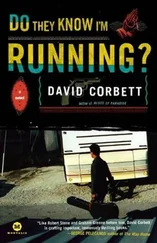Waxman eased up from his chair. “Yes,” he said. “My name is Bert Waxman. I’m the reporter who wrote that piece.”
“Rolando,” Facio said. “I realize you’ve been busy so let me explain this to you.” He pointed to Waxman. “This gentleman wrote an article which appeared in the San Francisco paper today. The article concerned the murders of some people- ”
“Three people,” Waxman noted.
“Three people, thank you. Murders which took place last night. A woman has been abducted, apparently, and is being held for ransom.” He turned to Waxman. “And I’m guessing that you are here because someone has come forward with the ridiculous accusation that we are somehow involved.” Without waiting for Waxman to respond, Facio turned back to Moreira and said, “Rolando, did you kill someone without telling me?”
No one laughed, not even the large one in the corner, which confirmed for Abatangelo that he didn’t speak English. Turning to Waxman, Facio asked, “Who told you such preposterous lies?”
“A man named Frank Maas,” Abatangelo answered. “He told us- ”
“And you are?”
Abatangelo nodded toward Waxman. “I’m his photographer.”
Facio took a second to consider this. “Frank Maas, you said. I do not know him. Rolando?” Moreira shook his head in disavowal behind his cigar. “We have no idea who this source of yours is,” Facio said.
“He claims,” Waxman interjected, “to have delivered stolen goods to some of your men.”
Abatangelo held out his hand. “Wax, wait a minute.”
“He arranged with those same men,” Waxman continued, “for the murder of a local drug dealer named Felix Randall.”
“Wax- ”
“But the arrangement was a double cross, you lost several of your men, and then retaliated with the kidnapping of the woman in that picture.”
Facio laughed good-naturedly. “And we killed someone. Don’t forget.”
“Three people,” Waxman corrected. “One a seven-year-old boy.”
“Wax, shut up,” Abatangelo said.
“That is simply, wholly, fantastically untrue,” Facio replied.
Waxman stood there with his eyes whirling as though in the thrall of a fierce intoxication. He was high on fear, Abatangelo guessed. Fear and the sound of his own voice.
“I had little doubt you’d say that,” Waxman said. “You realize, though, it won’t prevent me from going forward with the story.”
“You intend to print these hallucinations?”
“Oh, yes,” Waxman told him. “That and more.”
“Then you are not a journalist, Mr. Waxman. You are a fabulist.”
“I’ll incorporate your denials. But I intend to print the story.”
“That will be libel,” Facio advised.
“No. You’ve had your chance to respond. There’s no malice here.”
Facio laughed and moved a little closer to Waxman. “Isn’t it customary for a man to be able to confront his accuser?”
“He’s dead,” Abatangelo said, trying to regain control of the situation, at the same time sensing it was already lost. “Frank Maas, he blew himself to pieces this afternoon. We were there. He’s dead. Okay?” He held up the picture of Shel again. “There’s no need to include her in this anymore. She’s done nothing. There’s nobody to trade her for. You can take her out somewhere, the middle of nowhere, blindfold her, let her go, that’ll end it.”
Facio said, “I have no- ”
Abatangelo stepped forward so their faces were only inches apart. “If you need someone,” he whispered, “need to have someone as a guarantee, take me.”
Facio gestured, and the large man in the gray suit rose from his chair.
“I’m begging you,” Abatangelo went on, the desperation obvious in his voice now. “Let her go. Trade me for her.” He felt a hand on his shoulder. He shook it off, dropped Shel’s picture and grabbed Facio by the lapels. “She means nothing to you. How can it make any possible fucking difference? Take me.”
The large one grabbed him by the collar and withdrew a pistol in the same movement. Abatangelo swung back with his elbow but missed. The move drew him off-balance. The large one, still gripping his collar, twisted him around with embarrassing ease and kneed him hard in the midriff. His lungs emptied, his knees buckled. Shortly he lay on his back, the large man’s knee now lodged on his chest and the gun aimed point-blank at his face.
“Shhh,” the man said, grinning. Abatangelo looked up beyond the gun into the man’s face and saw such a breathtaking lack of intelligence that for the first time he felt true terror.
Moreira shot up from his seat. “I’m calling him,” he said, and fled the room.
“Him,” Waxman said, head spinning toward Moreira then back to Facio. “Him who?”
Facio held up his hand.
“For the record, as they say, we have committed no murders. We are involved in no illegal acts of any kind. And if you bother to learn more about us, you will realize how ridiculous you will sound repeating these charges.”
Waxman reached down into his pocket and withdrew two clippings, unfolding them carefully. “Interesting you should bring up background,” he said. “I noticed some omissions in your press packet.” His hands trembled as he offered the clippings to Facio.
Facio unfolded the articles as though expecting something to crawl out from inside. The first concerned his conviction on weapons charges in Texas. He recognized it and smiled. The second, however, appeared to baffle him. It was written in Dutch, so he resorted to the attached translation in Spanish. It related the account of a Jesuit priest who had debriefed refugees entering Mexico near the Moreira plantation, around the highland village of Niquivil. The refugees told of a massacre across the border in the village of Santa Maria Ixcoy. The village was razed to build an airstrip for drug shipments, and all the adult men were first pressed into use as slave labor, then gathered together on the finished runway and murdered in front of their families, a warning to their wives, sisters and children not to talk. Three women in the village went mad, attacking the gunmen. One was taken into the jungle, tied to a tree, her skin scored with a knife so the insects could lay eggs in her wounds as she waited to be eaten at night by animals. The other two were left hanging from trees, their dead children tied to their backs. The massacre was conducted by paramilitaries led by a commander the refugees knew only as El Zopilote.
“Where were you tonight, Señor Facio, while Don Moreira was giving his speech?” Waxman asked. “Giving a little speech of your own? To the men? Telling them how proud you are, that you could see the bravery in their eyes? You have become famous for that speech, are you aware of that? But that, unfortunately, is a different piece. I didn’t bring that one.”
Facio folded the articles in half, squeezing with finger and thumb down the crease. He looked down at Abatangelo, then back at Waxman, sighing with irritation. He said something in Spanish and the large one lifted Abatangelo to his feet and planted him in a chair. He kept the gun trained on him. Returning his attention to Waxman, Facio asked, “Do you know what is keeping you alive at this moment, Mr. Waxman?”
A gagging reflex shut Waxman’s throat at first. Finally, he managed, “My newspaper knows- ”
Facio cut him off with a gesture and a smile.
“Your white cells,” he said. “Your white cells are keeping you alive.” Facio studied his hand as though to contemplate the underlying tissue. “The white cells work even while your body rests, always vigilant, because infection remains vigilant. Without white cells, even weak, obscure, bizarre infections can kill. You can drown from the microscopic creatures which grow in your own lungs, were you aware of that?”
Читать дальше












